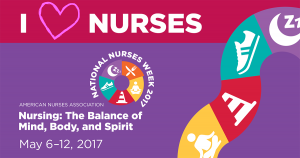This week the Senate passed a landmark piece of legislation, the SUPPORT for Patients and Communities Act, that aims to curb the nation’s ongoing opioid-use disorder crisis. The legislation includes a critical provision that enables nurse practitioners and physician assistants to prescribe buprenorphine permanently – once they obtain a waiver required by any provider to prescribe medication-assisted treatment (MAT) – and expands MAT prescribing authority for five years to other advanced practice registered nurse (APRN) specialties: certified nurse-midwives, clinical nurse specialists and certified registered nurse anesthetists.
Medicaid Provisions in the SUPPORT for Patients and Communities Act
The bill also includes several critical Medicaid provisions aimed at treating individuals who suffer from an opioid-use disorder and preventing others from developing an opioid-use disorder. Taken together, these provisions will significantly increase access to opioid-use disorder treatment and counseling services for some of the nation’s most vulnerable populations and will decrease the rate of new opioid-use disorders.
These provisions include:
- A temporary suspension (from Fiscal Year 2020 through FY 2023) of the Medicaid institution for mental disease (IMD) exclusion for short-term stays (less than 30 days per year) and the codification of regulations that allow managed care organizations to receive federal funding for patients who are in an IMD for 15 days or less per month (current law does not allow federal payment for patient stays in IMD facilities with greater than 16 beds);
- A requirement for states to cover MAT, including methadone and counseling services, for opioid-use disorders from FY 2021 through FY 2025;
- A provision that allows states to cover care for infants with neonatal abstinence syndrome at a residential pediatric recovery center and an extension of enhanced federal match provided under Medicaid for health home services to treat individuals with substance use disorders;
- A requirement for state Medicaid programs to not terminate coverage for juvenile inmates under the age of 21 while they are incarcerated and an extension of Medicaid coverage for former foster youths ages 18 to 26 who move states, and;
- A requirement for states to comply with drug review and use requirements as a condition of receiving federal Medicaid funding and a provision that allows state Medicaid programs access to state prescription drug monitoring programs.
Trump Administration Approval of Medicaid Work Requirements
It is ironic, then, that as the SUPPORT for Patients and Communities Act heads to President Trump’s desk, his administration is actively taking steps that will create barriers for Medicaid beneficiaries to remain covered under the program. CMS Administrator Seema Verma recently defended the administration’s policy of approving Medicaid waivers for demonstration projects that impose work requirements on certain Medicaid populations (i.e., the Medicaid expansion population of low-income, childless adults).
CMS recently faced criticism after 4,300 Arkansans lost Medicaid coverage in September as a result of not meeting the state’s new work requirements; this is the first time in the Medicaid program’s 53-year history that beneficiaries have lost coverage for not meeting work requirements. The administration has approved work requirements for Indiana and New Hampshire, and waivers to impose work requirements are pending in South Dakota, Kansas, Mississippi, Ohio, Maine, Utah and Arizona. Kentucky’s work requirements waiver was struck down in federal court in July, though the administration is currently working with Kentucky to revise implement those requirements nonetheless.
Studies show that work requirements for Medicaid beneficiaries have little to no impact on employment and, as demonstrated in Arkansas, result in coverage losses. According to a December 2017 Kaiser Family Foundation issue brief, roughly 6 in 10 of the 22 million non-disabled adults receiving Medicaid benefits are employed either full- or part-time, while 8 in 10 of these adults live in a working family. Most of these individuals work either for small firms or in low-paying industries which do not offer healthcare coverage and thus rely on Medicaid for such. Further, among those adults who are not working, most report a major barrier to employment such as illness, disability, or care-giving duties. According to the same Kaiser issue brief, Medicaid expansion has not negatively impacted labor market participation; in fact, some research demonstrates that Medicaid coverage supports work.
ANA Commends Congress and Urges Its Members to Vote in the Midterms
ANA applauds Congress for its hard work and dedication in passing the SUPPORT for Patients and Communities Act and for recognizing the role that RNs and APRNs play in patient care for those with an opioid-use disorder.
However, ANA firmly believes in universal access to comprehensive and affordable healthcare services for all Americans. The recent moves by both the Trump administration and state governments fly directly in the face of that goal and represent major steps backward in the effort to ensure that all Americans – especially vulnerable populations such as low-income women and those with pre-existing conditions – have access to all necessary healthcare services. These moves also undermine the progress made in Congress with the SUPPORT for Patients and Communities Act.
Healthcare stands to be a major issue in the upcoming 2018 midterm elections – 22 percent of respondents to a June 2018 NBC News/Wall Street Journal poll named healthcare as the most important factor in deciding their vote. These elections are right around the corner and are an incredibly important opportunity for ANA’s members to make their voices heard when it comes to determining the future of healthcare in this country. When nurses vote, lawmakers in Washington, DC, and in statehouses across the country listen. Visit ANA’s #NursesVote Action Center today and help us make this the most meaningful election for nurses yet.

